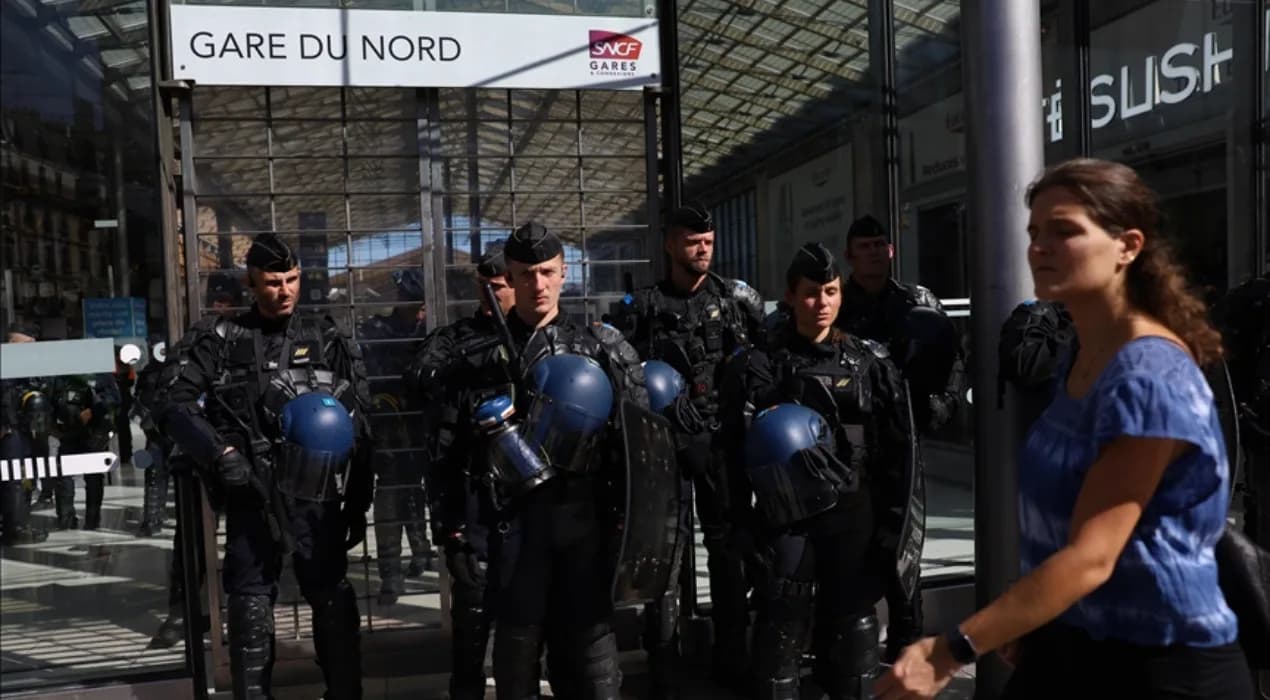French union CGT says over 1M joined nationwide protests against austerity on Thursday, with police arresting at least 181 demonstrators.
Ten demonstrators, a journalist, and seven law enforcement personnel were hurt at the rallies, according to the Interior Ministry.
Numerous industries are being impacted by the ongoing strikes and protests, including the pharmaceutical and educational sectors. According to the Student Union syndicate, 110,000 high school and university students have been mobilized, and the Federation of Pharmaceutical Unions of France (FSPF) reported that 20,000 pharmacists are "in the streets."
282,500 protesters are demonstrating in areas other than Paris, according to the Interior Ministry.
Tensions broke out at Boulevard Voltaire after the Paris parade started out amicably, with police reporting "an attempt to damage a business." Officers had to use tear gas grenades and make arrests after being attacked with stones and bottles in the vicinity.
According to reports, 35,000 departmental gendarmes are in place.
The mobilization, which was coordinated by significant French trade unions, was a reaction to contentious budget measures that former Prime Minister Francois Bayrou had presented.
Retailleau stated on Wednesday that he anticipates a "very, very strong" mobilization in a number of areas, including industry, entertainment, transportation, education, public services, and agriculture.
The Interior Ministry said it would use armored vehicles, drones, water cannons, and more than 80,000 police officers and gendarmes across the country to secure the protests.
Twenty-four Centaure armored vehicles and about ten water-launching weapons will be spread throughout France in a move not seen since the Yellow Vest rallies.
Up to 800,000 protesters are expected to take part in the 40 union marches that are scheduled across the nation, according to early estimates.
The event on September 18 comes after last week's "Block Everything" mobilization, which attracted about 197,000 participants nationwide.
Political tensions are rising in France after Bayrou lost a vote of confidence in the National Assembly on September 8.
As part of efforts to lower France's skyrocketing public debt, which is currently 113% of its GDP, Bayrou, who announced a 2026 budget framework in July, was looking for backing for a plan to save over €44 billion ($51 billion).
Armed Forces Minister Sebastien Lecornu was named the new prime minister of France by President Emmanuel Macron. It is his responsibility to consult with political parties before creating his government.
At 5.8% of GDP, France has one of the biggest budget deficits in the EU.
One of the main causes of conflict in French politics has been the budget talks.
Last year's inability to agree on the 2025 budget also contributed to the fall of Michel Barnier's administration in December, when far-right and left-wing parties united behind a resolution of no-confidence.
What are the main demands of the protesters in France today?
Demonstrators, spearheaded by union organizations such as the CGT, are calling for the government to abandon projected cuts to budgetary spending to reduce the public debts by just under €44 billion.
They are advocating for increased investment in public services such as education, health and transportation to protect and enhance the rights of workers, and to preserve and expand social entitlements.
The protesters want the government to increase tax rates for high earners and businesses instead of targeting workers and low-income people.
Unions are generous of raising the retirement age and want to reverse recent pension reforms designed to extend the working life.
